German Captivity - POW camps
Memoirs of a 15-year-old freedom fighter
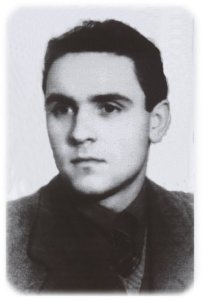
Senior Rifleman Witold Konecki ´Sulima`,
'Chrobry I' Battalion
'Sosna' Grouping
October 3rd, 1944 - day of capitulation. On the morning of October 4th, our divisions, which were a part of 15th infantry regiment, marched into Kerceli Square to lay down our arms and go into German captivity. Guarded by Wehrmacht soldiers, we were marching in close formation along the deserted streets of Wola district and heading towards our destination, a cable factory in Ozarow Mazowiecki. This was the concentration point for all captives. Near Ozarow, local people were giving us onions and fruit. They were brutally pushed away by the Germans
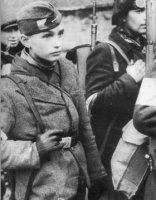
Warsaw insurgents going into German captivity,
Warszawa, October 1944
|
As we were marching along cabbage fields, I realized there was a chance of escaping as the German guard was busy driving away a woman with a basket of apples. I jumped over a ditch and dived into the cabbages. I started to sense the smell of liberty. I began to move on crawling and after 150 metres I raised my head only to see a row of machine guns and dozens of Germans around. I had to come back and re-join the POW marching column.
I arrived at the cable factory in Ozarow at noon, on October 4th, 1944. I did not know any of the soldiers who were packed into the factory hall. I was tired but the only thing I wanted was to find my companions. It was becoming dark when I was suddenly grabbed by the hand by someone. 'Sulima`! Is that you? What about your escape?' Soon all was clear. It was 'Bogdaniec'. I joined my group, which had been placed in the same hall but in a far-away corner. I felt better now.
We spent the night on the concrete floor where some hay had been scattered. Still, we could stand this. The worst thing was the red paint on the floor which we found all over ourselves the following morning. The colour got more intense because of sweat and water. We could not even think of escaping now. On the next day, a cargo train drove into the factory area. Each of the carriages was filled with sixty soldiers. The Germans kept accurate records on all brought in there. I got a copy of my documents as Letter no. 351 from the museum in Lambinowice.
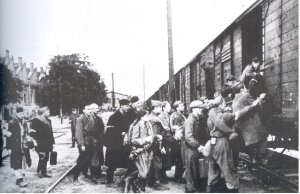
On the way to German captivity
October 1944
Our journey began but we did not know our destination. I was standing in the corner of the carriage leaning against its walls. It was impossible to turn around. I was short of breath, it was so stuffy in there. Curses mixed with prayers. I was scared, I had to fight for the living again. Suddenly, I realized I had managed to smuggle a knife. I decided to make a hole in the carriage floor. It took me several hours but I could breathe fresh air at last.
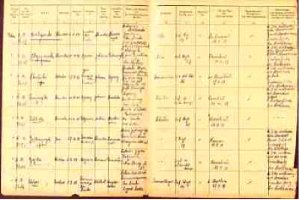
A fragment of the transport list from Stalag XIB Fallingbostel
(archives of the Central Museum for POWs in Lambinowice)
The journey took more than 30 hours. During this time, the Germans were firing randomly from their machine guns at the carriages to prevent us from escaping and silence the shouting.
Sugar beetroots were thrown into our carriage. They were caught by the fastest men and then eaten. This had a disastrous effect as it brought about terrible stomach pain, vomiting and diarrhoea. Those people's thirst was unbearable and their moans terrifying. I was lucky not to have caught the beetroots.
We passed through Czestochowa and then the Germans began to shoot at one of the carriages. They killed an officer from 3rd company of 5th infantry regiment of the Home Army. Witold Antoniewski 'Ranicki', a 24-year-old officer and a boy nicknamed 'Slon' were injured. The Germans did not take the dead body nor did they help the injured. The train was going to the POW in Lamsdorf (Stalag 344 O/S).
We reached our destination after two days. The Germans were very brutal towards the insurgents. They were beating us with gun butts, stabbing with bayonets, pushing, kicking, stripping the Home Army arm bands and national emblems from our caps. They took away walking sticks from the injured. They told us to form columns. We would be escorted by armed soldiers with dogs. They were cursing and threatening us. Accompanied by hostile shouts of German local people, we walked fast for 5-6 kilometres from the station to the POW camp. Women and youth from Hitlerjugend were approaching us and beat us with whatever they found. They were spitting and cursing. The guards took away good-looking suitcases and packages and threw them over the fences into the private land.
They set dogs on those who were lagging behind. Some of the prisoners dumped their rucksacks, suitcases, blankets and coats to go on walking and be able to help children, the injured and weak. I dumped my rucksack and blanket and avoided fainting only thanks to a mug of water that I bought from a woman for 20 dollars. These twenty dollars was my whole soldier's pay. I gave my friend some water. During our journey, we experienced something unusual - we saw two German military planes crashing in the air. It was a symbol of German defeat to us.
After all these years, it is difficult to specify the distance we covered. At that time, we thought there was no end to it. I think we walked 6 kilometres. We passed through the forest and fields and we finally reached the camp. There were many wooden barracks and a large roll call square. The camp was named M. Stammlager 344 Teillager Lamsdorf O/S.

Stalag. Archive photo
We spent the whole night in the roll call square. In the morning, Russian captives told us to destroy our documents and any military decoration in particular. I decided to conceal the fact I had been decorated with the Cross of the Valorous and the Brown Cross with Swords for Merit for my fighting in Warsaw. Others were doing the same. All the documents were burnt. We were placed next to Russian POWs, separated by a barbed wire fence and death strips lit by lamp posts. The Russians were begging for warm clothes and we were begging for food so we began trading over the fence. We sold our clothes and watches in return for bread. Yet this was stopped by the Germans.
The morning roll call lasted 5 hours. The Germans were counting us all the time. They were furious, they were shouting, we were exhausted and scared. We were driven to the baths where we were shaved with blunt razors all over the body. Some black disinfecting substance was applied to our shaven places, which caused severe itching. After the bath, our personal details were taken down, we were given old uniforms and Russian coats with KGR in red letters on the back. We also got old military underwear, Czech worn-out shoes and metal identity badges. All we took off before the bath was never returned. Next, we were given our identity numbers to wear around our necks (the same we had on the metal badges). From this moment on, we were nothing more than a camp number. My number was 103162.
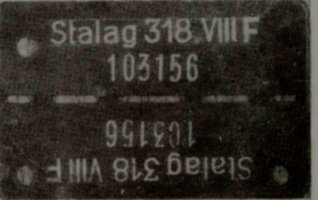
Camp identity number
|
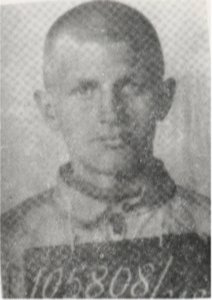
Young prisoner of war - Warsaw insurgent
|
Hunger, autumn time cold and lack of hygiene were perfect conditions for insects to infest the camp. We were placed in barracks that had no doors or window panes. Each of them had only one heater, so called 'koza' (goat), but no fuel at all. There were no blankets or mattresses on the bunks. These caused various diseases like diarrhoea, anaemia, pneumonia and scurvy.We often used planks from the bunks to make fire and keep warm. We got very little food and it was always the same. In the morning, we got one loaf for seven people, spoonful of margarine or marmalade, half a litre of coffee. At noon, we got half a litre of dried swede soup, 2-3 potatoes and 2 spoonfuls of meat sauce. In the evening, we got a litre of coffee.
It was very hard to stand up during the roll calls that lasted for many hours. They were held regardless of weather conditions only to check the number of prisoners. With hardly any clothes on, often in the wind and frost, with our legs in mud, we had to stand there in for hours.
On October 18th, 1944, an unexpected roll call was held which was to last many hours. 550 of the youngest soldiers who were twelve to seventeen years old were selected. This was being filmed by the Germans who wanted to use this as Volksstrum propaganda to attract young people to their army. Polish boys ignored this completely, which infuriated the Germans and made them stop the filming. It was another evidence how brave these boys were.
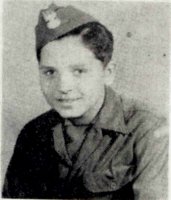
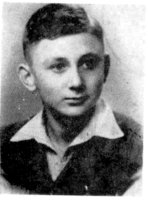
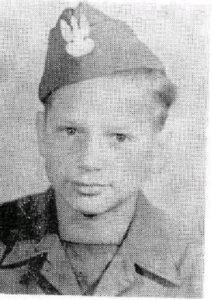
Warsaw insurgents - prisoners of war
During this roll call, the Germans were unaware that they had selected a unique group of soldiers, incomparable to any other in history - a team of the youngest defenders of Warsaw. Even though we were the youngest, we were treated in the most ruthless way - first by experiencing the most severe restrictions in the camp and then compulsory work in arms factories. All this was a part of a plan to annihilate the Polish youth.
The German commanders of 344 OlS I.amsdorf had deceived the Polish officers while assuring them that the youngest insurgents would be sent to Czestochowa and handed over to the Welfare Council (Rada Glowna Opiekuncza). When the roll call was over, we were separated from adults and moved to a much more rigorous part of the camp. We were classified as 5th category of POW which meant cruelty with no responsibility. Facing this, we decided to escape. We were desperate.
I was one of the four boys who decided to make this attempt. We noticed that the camp was guarded not only by armed soldiers in observation points, so called 'stork nests', but there were also patrols on bicycles, accompanied by dogs watching the camp from the outside. We planned to escape when it was very foggy, immediately after passing of the patrol, sneaking through halfway between the 'stork nests'.
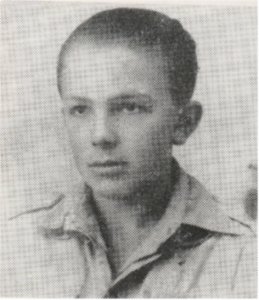
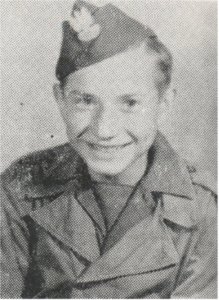
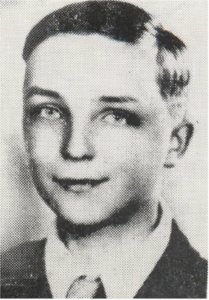
Warsaw insurgents - prisoners of war
Finally, however, I did not take part in the escape attempt. One day, it was rumoured that the Germans had dumped frozen potatoes into the latrine, which turned out to be true. We decided to get them from there in secret. We washed the potatoes carefully and grated them on the tin. We baked potato pancakes on bricks heated in the fire. We could fill our stomachs at last! Each boy from our group ate as much as he could. The remaining food was fairly distributed and stored for the following days. Soon it turned out that we had tolerated only hot food, the cold potato pancakes caused severe stomach problems. I ended up with dysentery, which was very hard and hazardous to life. I felt worse and worse, I was bleeding. I was weakened by high fever, I lost consciousness. I was certain my life was drawing to an end. I thought I would soon die being away from my family, in a foreign and hostile land, with no medical care. I could not stand up. I was brought to the roll calls by force by my companions. I could not report to the German authorities about my condition as I was afraid of the military hospital and that my condition would be treated as typhus. I would be isolated, no one knew what happened to these patients later. I gave my food to my companions as I could not eat at all.
Once day, when I was lying on the bunk, in rags, in blood, with high fever, I got a letter from my mother. On a small piece of paper, she wrote: 'My dearest son, wherever you are, exhausted or ill, in danger or in pain, I know you are desperately striving for life. You will win and this is your mother who is saying so and I never lie. We will soon be together and happy - With Love - Your Mother.'
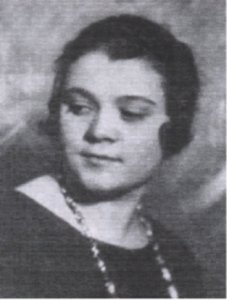
My mother - Cecylia Wanda Konecka (maiden name - Garbowski)
It was a turning point for me. My body was reinforced with spirit. I could not believe my senses, yet it must have been true as my mother said so! I was rescued by a Russian prisoner who, following the request of 'Zych', my friend, got some herbs in return for a watch. He told us to crush/crumple/squeeze it on the stones, pour it with boiling water and drink four times a day. The treatment did wonders to me. On the second day, the bleeding stopped, pain subsided, and even though I was still feeble, skinny and could not stand up I felt like eating again.
But let us come back to the planned escape. My friends decided to do this without me. Those who took part in the escape were: Jan Zbigniew Sznytko 'Bogdaniec', camp number 103235, Janusz Jan Wi¶niewski 'Irek', camp number 103161 and Jan Lewandowski 'Aleksander'. Yet this had a tragic end. On the night of November 1st, 1944, making use of the unlit strip of land, boys crawled up to the wired fence, cut it through thus making a way out. Suddenly, a German patrol came by on a bicycle. The dog smelled the presence of escapers, ran up to the fence and began to bark. The German stopped, lit the fence with his lantern and then shot several times. 'Bogdaniec' was shot dead, 'Irek' and 'Aleksander' were badly wounded. They were beaten with gun butts, kicked, and bitten by dogs.
'Irek', who was got serious injuries and was unconscious, was considered dead. They took away his identity sign and updated his records accordingly. He was only saved thanks to the help of Russian prisoners and Polish nurses. But officially the records said he had died on that night. Jan Lewandowski 'Aleksander' had a badly injured chin. After three weeks, I saw him in a marching column. He was yellow and skinny.
We suffered more and more from lack of food. Daily portions did not exceed 700 calories. Young prisoners suffered from dysentery and cold. The ill stopped attending the roll calls. The Germans counted them in their beds.
My friends took care of me. I was recovering very slowly. I changed potatoes that I got for dinner for half a slice of bread. Bread was a real luxury to us. We held a lottery before portioning it.
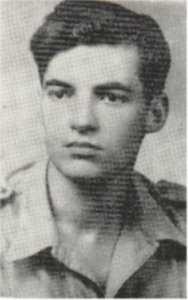
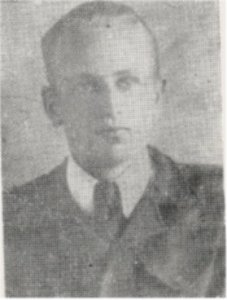
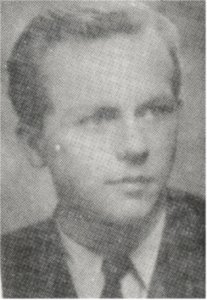
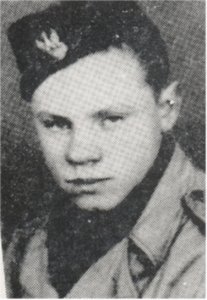
Warsaw insurgents - prisoners of war
Winter was approaching. On November 18th, I found myself in a group of 242 prisoners who left the camp in Lamsdorf and were moved to another transit camp - IV B Muhlberg - Elbe.
The journey took four days. We were placed in cargo carriages, each one packed with 60 people. We could not open doors or windows, we got no water, only some bread. When we reached Mühlberg we were hungry, exhausted, ill and dejected. We were a helpless human mass, we had no guardians. Our only aim was to survive. We stayed in Mühlberg for ten days, our identity numbers were changed. I got number 305713. We slept on the floor in a large hall.
On the first days of December 1944, I joined a group of 64 prisoners delegated to work in a machine gun factory, Wanderer Werke in Chemnitz, being a commando of IV F Hardmansdorf POW camp. We got new clothes marked with KGR letters in white paint and Rot-Winklem red triangle.
There was a complete production line for machine guns and bombs in the factory and it had its rigorous regulations. The production was strictly confidential, it was a State secret.
Our whole group was isolated both from other workers and the outside world. We were accommodated in a 55m2 room located on the factory premises. We slept on two bunk beds. Next to our room, there was a guard's room where armed guards were on duty round the clock. There were primitive sanitary fittings and a corner for having meals. There were barred windows which were never opened (as required by military secret). The most terrible thing was the stuffiness and lack of fresh air, it was even worse than hunger, drudgery and deep fear of constant air raids. We could not go out of the factory, each day we were led out of our room to work through roofed passages. We did not see the sky for 5 months. We worked for 10-12 hours with no days off. In these conditions, we were totally depressed and almost insane.
Jozef Wanski was our guard there. He was a very strange and mysterious person, we did not like or trust him. We knew nothing about him. We started to work after a short training. We operated machines that produced arms. But there was little benefit Germans got from this as we were sabotaging. We destroyed machines and elements or produced weapons that had technical flaws. It was done with the utmost care so that no one could be caught red-handed. This infuriated Germans, which in turn meant stomach problems and stricter discipline for us. Constant air raids by the Allies and the need to take refuge in the shelters made the sabotaging easier. Germans were petrified of the air raids. They left their work positions in panic and ran to their shelters. Our boys took advantage of this and searched German cabinets for food.
In April 1944, Chemnitz fell into ruins. One air raid of several hundred planes destroyed the city completely. Carpet air raids dropping fire bombs lasted for 2 hours and left little chance even for people in shelters to survive. All was on fire, even trees and inflammable buildings. People were going out of the shelters burning. Tens of thousands of people are said to have died on that night. We were sitting in underground shelters near the factory which was not destroyed only because it was owned in majority by the Western countries. The city resembled destroyed Warsaw. The Germans began to panic.
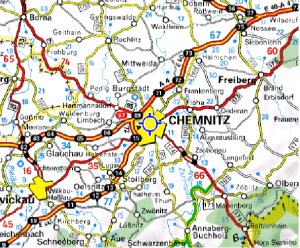
We were not hurt by bombs, all of us were saved, we were happy we would no longer work in the arms factory. When the air raids were over, we were driven to dig up people trapped under destroyed buildings. It was easier to get food now. Germans kept their tinned food, mostly vegetables, in the cellars.
The winter of 1945 was approaching. We could hear the front line forces in the distance. Our camp was to be evacuated. Wanski, our guard, disappeared. We started walking towards Czestochowa. Out guards were not watching us carefully so I and my three companions decided to escape. But we were not successful. After a few days in the forest, we had to leave the hiding and go to a nearby village to ask for food. While we were having the meal, we were surrounded by SS and forced to surrender. We told them we were prisoners of war and showed them our POW numbers. We were protected by the Geneva convent and had our POW rights. But we lost our freedom which lasted only a few days - we were again in German captivity, now guarded by SS. We were moved to a police station and placed in cells. We had to stand up there, each alone, for two days with no food, water or light. When we were totally exhausted, depressed and almost sure we would die there, we were unexpectedly let out. We were driven into a lorry and moved to a camp located an hour's drive away. It was near Annaberg. We met there the boys from our kommando as well as Russian and Czech prisoners. There were also SS and Wehrmacht officers and representatives of the Swedish Red Cross.
These were the last days of the war - on May 6th 1954, we were liberated by the American army. Before that, we witnessed a rebellion of Russian soldiers who got evidence the Germans wanted to blow the camp up and killed the camp guards with their own hands. American army entered the camp when it had already been self-governed by the prisoners. The next days were full of joy over defeating fascism. The meeting point of the liberated POWs was made in Annaberg where divisions of various nationalities, including Polish, were formed. Our group constituted a special unit commanded by American officers. We were offered to stay in Germany for a few months and then go to Barbara in Africa to join the army of General Maczek and serve in guard companies. We had to take a quick decision as we were stationing on the demarcation line from where the Americans had to withdraw soon and hand it over to the Soviet administration.
Finally, together with Maksymilian Nackiewicz we decided to take a risk and come back to Poland. We decided to go to Wroclaw. We walked, went by bicycle or on horseback. About 40 kilometres away from Annaberg, we saw a cart and five Polish soldiers, former prisoners of war from 1939 on it. They suggested that we join them. We were happy to get on the cart. Two of our comrades had short guns. After a few kilometres, we saw a group of soldiers approaching us. They were wearing worn out uniforms and had various types of weapons. We thought these were Soviets patrolling the area. But while they were only a few metres away, they fired at us from their machine guns. One of our soldiers was wounded, two others were shooting back, the rest of us jumped off the cart and ran away in various directions. I ran into a private farm and jumped into cowpat ditch. I stayed there until dusk Then I started my journey alone.
I passed deserted and burnt villages and towns. I was wearing civil clothes. I told the Soviets I was a Pole and I was working for a German farmer and that I was coming back home. The route through Wroclaw was closed because of cholera epidemic there. I headed towards Legnica. But the city gave me a cold welcome. The first administrative unit I came across to which I reported as a Warsaw Uprising insurgent and member of KEDYW (acronym for Kierownictwo Dywersji, Directorate of Sabotage and Subversion of the Home Army) was NKVD. As a result, I was handcuffed and placed in a cell. They threatened they would send me to Siberia. I broke down, I was petrified. Then the hearings started during which I was beaten. I told them only the truth and my oppressors were very surprised I was so naive.
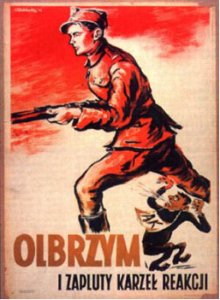
Warsaw Uprising heroes were to face
persecution and lies of Communist propaganda
I assume this child-like honesty disarmed the sergeant or maybe he recalled he was a Pole himself. He decided to help me. At the next hearing, he told me I would owe my life to him. He took off my handcuffs and told me to run away as fast as I could. This was my last chance. I jumped to my feet and ran through the hall out to the courtyard. I heard shooting behind but I knew it would not reach me. The sergeant kept his promise.
I was totally depressed, overwhelmed by fear, my whole world fell apart. Instinctively, I passed several streets running. In the suburbs, I entered an empty house and hid myself in a cellar filled with coal. I spent there two days. I was hungry and had no plan. Finally, I left the cellar and moved on not knowing where I was going to. I met a Soviet patrol and was brought by them to their unit. I was questioned there by a commander. I answered willingly but lied all the time. I told them I was working for a German farmer, my parents were murdered in a concentration camp and that I was heading towards Poznan. The commander told them to give me food and drink and show the place to sleep. I lay down on a shattered bunk.
Soon I made friends with him. This Soviet officer served in the front line where he met the American army. On the demarcation line, he was given thanks for his heroic service and demobilised. He was waiting for some formalities to be completed to come back to USSR. I left Legnica with him in the first transport heading east. I was sure we would go to Poland. I promised my guard I would not leave him and I would pretend to be his fostered child. We were travelling for a few days in a carriage full of looters. One night, when we stopped at the station in Azory near Kutno I took off the Soviet uniform, jumped out of the carriage and ran away as fast as I could.
I could not come back to my parents' estate in Milonice as, based on the decree of PKWN (Communist Government created by Soviets) of July 1944, it was taken over by the Communist State and parcelled out. I knew my aunt lived in Krosniewice, which was not far away. I had to walk over 20 kilometres to get there. I was overwhelmed with joy to see her, I could not stop crying. Even the medicine my aunt gave me did not help. Soon I fell asleep and slept for 12 hours. When I woke up, I saw my parents standing beside my bed. I felt happy and safe. My wartime ordeals were over, I could be a child again. In 1945 I came back from the war exile.
We are the generation which lost its childhood because of war. We were only teenagers when we joined the underground scouting teams and the Home Army. As children and teenagers, we were creating history with our own blood and suffering, by fighting with the German invaders and later in POW camps.
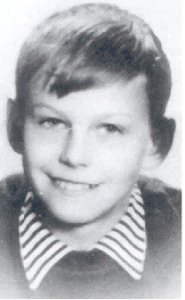
11-year-old Tadek died in fight
in the Warsaw Uprising
|
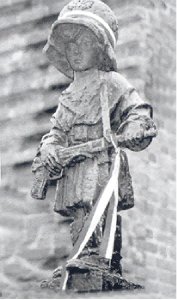
Monument to the Little Insurgent
|
Profound patriotism and power of spirit should be remembered by the next generations. Each of us was filled with love for Poland. The fight and POW camp experience shaped our views on life and death and gave us a lesson of character building in the most extreme conditions. We are proud to have proved that patriotism and love for our Homeland were the most precious virtues to us.
Witold Konecki
translated by Gabriela Sudacka

|
Witold Konecki 'Sulima'
'Chrobry I' Battalion
'Sosna' Grouping
|
 The list of 550 prisoners present at the roll call
on October 18th, 1944, POW camp in Lamsdorf, Stalag 344
The list of 550 prisoners present at the roll call
on October 18th, 1944, POW camp in Lamsdorf, Stalag 344
(based on the book 'The youngest prisoners in the war history. Warsaw insurgents in Stalag 344 Lamsdorf' by Damian Tomczyk)
More info on the POW camp in Lamsdorf can be found on the website of
the Central Museum for POWs in Lambinowice
Copyright © 2006 Maciej Janaszek-Seydlitz. All rights reserved.






















